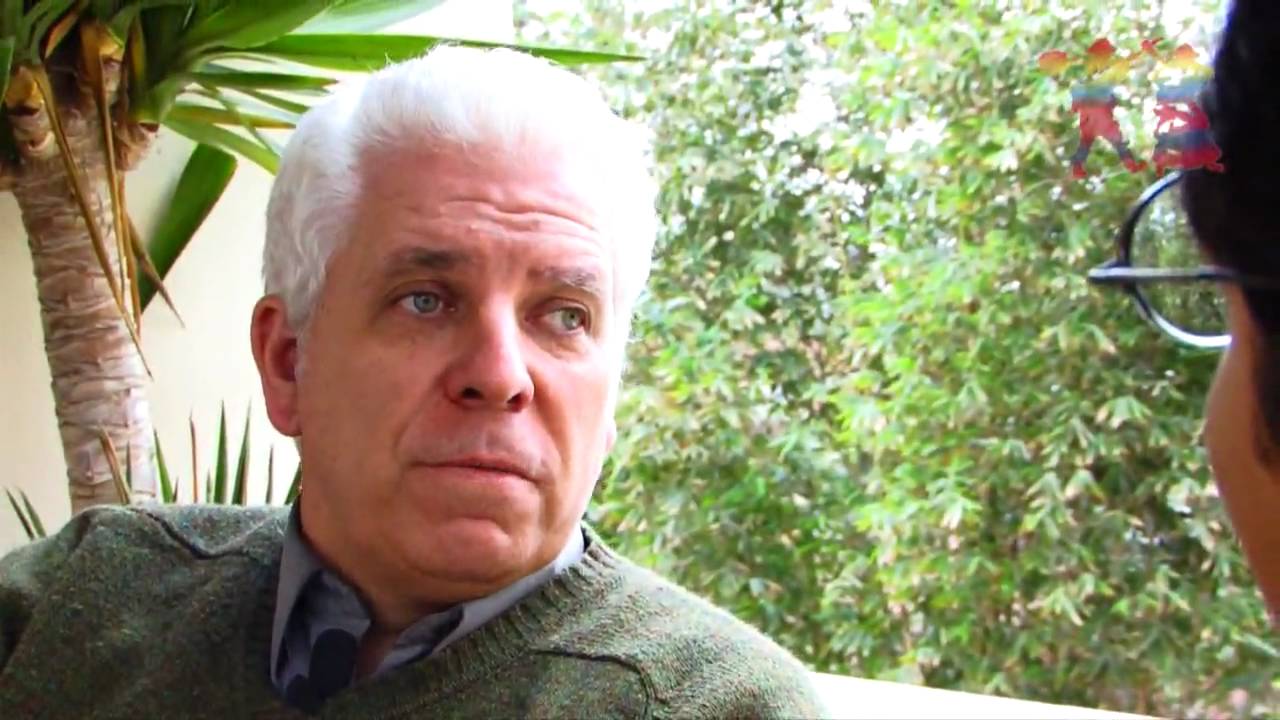by Eduardo Gudynas*
Gudynas answers and reflects on the debate his arguments raised about colonialism and extractivism in Latin America.

Eduardo Gudynas. Source: youtube.com
Weeks ago I shared some reflections on how some governments and progressive intellectuals who take ideas from the Global left, and use their limitations or deform them. It is a “friendly colonialism” because it allows them to maintain a leftist rhetoric while leaving their contradictions in the background (1).
The use of certain concepts of the British geographer David Harvey, highly promoted in Ecuador, Bolivia and other South American countries, was presented as an example. My concern was not centered on the person, but on how his ideas are used by South American progressive governments. He is an author best known for his critiques of capitalism, yet progressive governments exploit some limitations in his concepts for their own legitimization.
Four distinct issues were highlighted. The first is the high level of abstraction, focused on the critique of globalized capitalism, which allows to gloss over local contradictions under our governments. The second is a minimization of the local ecological dimension, which is exploited to question capitalism while tolerating the destruction of nature itself. The third is the limited attention given to indigenous ideas, which allows one to self-define as anti-capitalist while moving away from these worldviews and harassing their organizations. Finally, alternatives to capitalism are limited to prioritizing use values over exchange values, with which there is nothing wrong, but it is insufficient because it leaves us without much room for the rights of Nature.
My note awoke a few answers. I appreciate these contributions, as they are very useful to improve my arguments (2). In any case, I believe some clarifications are necessary.
First, I was questioned for noting that Harvey’s concept of ‘accumulation by dispossession’ “in its basic ideas is nothing new.” This is quite surprising and I ask the reader a little patience with details. Harvey himself acknowledges that it is based on Marx’s idea of primitive or original accumulation, and proposed a new term not so much because there are substantial differences, but because it is neither “primitive” nor “original”, but is currently operating (3). Harvey says that we should “replace” those terms used by Marx for the word dispossession.
There are a few authors who suggest similar positions to those of my article. For example, Giovanni Arrighi (with N. Aschoff and B. Scully), in addressing the situation of South Africa, pointed out that Harvey’s “accumulation by dispossession” is to a large extent a “synonymous” of Marx’s concept, and add that the processes the two concepts refer to are the same (4). My words then are not very original and should not surprise readers.
I also understand that we all accept that there is a long list of Latin American authors and activists who have denounced the predatory practices of appropriation of natural resources in Latin America, the usurpation of their lands and their lives, and the imposition of conditions of oppression. Those are the issues referred to as “accumulation by dispossession”, and there is nothing wrong with reclaiming and privileging contributions from our South (5).
Second, the problem of “friendly colonialism” is not an attack on Harvey, nor does it imply a rejection of all authors from the north, a denial of Marxism or the like. However, my interest was to point out deformed uses of northern academic ideas when they are exploited by southern progressive governments for their legitimization. My original article says: “We are not facing a problem with Harvey, but rather a limitation in us, Latin Americans.”
Despite all these warnings, something happened needed to happen: I received reviews which insisted that the focus was on questioning Harvey. That leaves behind, again, the actions of progressive governments. Again we are facing a classic problem of “reading comprehension” whereby one says “A”, but is criticized as if he had said “Z”. I point out this dynamic because it’s very typical of dogmatic positions, and it is used both by neoliberal supporters and from fanatic progressivism. I return then to the words of my article: “I insist that many of his (Harvey’s) theses can be shared, in that they offer a valuable tool to understand global capitalism”. If any doubt remains, I now add that I have no interest in a personal confrontation.
Thirdly, we can now address my concern: taking advantage of the inadequacies or limitations Harvey’s ideas, like those of other authors (such as Toni Negri), to understand the current moment in Latin America. In this sense, the strongest questioning came from a research center on issues of territory (CENEDET), within the National Institute of Advanced Studies (IAEN) in Quito (6).
They understand that my note was a criticism of Harvey, but a good part of their reaction does not focus on the central issue of my paper, that is, on how progressive governments use some of his ideas for building anti-capitalist discourses without recognizing their own contradictions or attempting to change them. They aim, instead, to defend Harvey. Although they have that intention, their main argument rests not so much on the qualities of the ideas of Harvey, but on denouncing that the positions on extractivism are wrong in general (and I assume my contributions in particular), and are even part of a bourgeois outlook. Surprisingly, the role of “extractivisms” such as large-scale, export-oriented mining, oil or agricultural exploitation, gets mixed in the debate.
I propose to discuss the issue calmly and in two steps. The first is to assume for a minute that the questioning from the CENEDET-IAEN are right, that everything that is said about extractivism—for example, warnings about large-scale mining or oil exploitation in the Amazon—is a huge mistake or the product of bourgeois thought. If that were the case, would this turn the use this group makes of Harvey’s ideas into truth? Would it turn large-scale mining into an anti-capitalist strategy? Certainly not. We are talking about very different issues, accumulation by dispossession and extractivisms. They are very different in their content, purpose, scope and conceptual frameworks.
We are clearly dealing with a methodological mistake which has become very common, whereby you try to dismiss a perspective without analyzing it, criticizing collateral issues. It is the same mistake that occurs when the warnings and alerts about extractivisms are not weighed in themselves, but are labelled as being conservative, bourgeois or infantile expressions.
The second step is to examine the validity or rigorousness of the critiques of CENEDET-IAEN. I will use a couple of examples. First, CENEDET-IAEN states very emphatically that in my original article I say that the “concept of use value has no application in Latin America.” Nowhere my article says that. Again a problem of reading comprehension appears.
What my text actually says is that the alternatives that propose returning from the primacy of exchange value (as with the financialized economy), to that of use values have limitations. Again I clarify: not that this is bad, and some of the alternatives proposed are very important and necessary contributions, but they are insufficient. That is because in Latin America there are reflections and citizenship practices that go beyond use value and exchange value, among them stands out the recognition of the rights of Nature in Ecuador. If those other pluralities of valuation are not recognized, significant progress such as the inclusion of the rights of Nature in the Constitution of Ecuador, are relegated to the back burner.
The formulation of the question about values, in the ways done by CENEDET-IAEN, shows that they cannot see or prioritize the importance of values that are not anthropocentric, such as the rights of Nature. That may be understandable; not everyone is obliged to accept the rights of Nature. But the question to which I drew attention is that dismissing these rights is very appealing to progressive governments who want, for example, promote large-scale mining or oil exploration in areas of high biodiversity. That is one of the reasons why progressive governments take advantage of limitations or weaknesses in such perspectives. And that was precisely the central point of my article.
The second issue is the criticism against warnings about extractivisms. It must me specified that an analysis of extractivisms is essentially a critique of the roots of development models incompatible with social, environmental and ecological justice. Many academics and activists, particularly from South America, participate in these warnings. Many dimensions are considered; therefore, arguing that global dynamics and the role of capital are neglected reveals that this work was not read, or it was read very superficially (7). As this is not the central issue, it suffices to indicate that, in my case, these issues take up at least three chapters in my recent book “Extractivismos” (8).
Instead, the CENEDET-IAEN team says an approach based on Harvey is superior in linking the local with the global. They offer as an example the violent dispossession of Amazon Indians caused by capital overaccumulation in China. This is fine, it can be very useful. But it is insufficient, and that was part of the central problem addressed in my note.
The shortcoming is that between the Amazon and Beijing there is a wide range of intermediate actors and actions. In the dispossession also act, for example, our states, the central and municipal governments, national business groups, mestizo academics, and many more. There are times when progressive governments become one of the main factors of dispossession (following Harvey’s terminology). And this problem is minimized from the perspective advocated by CENEDET-IAEN.
I wonder, for example—are regulatory changes to open protected areas to oil firms or the criminalization of indigenous resistance due to the needs of capital accumulation in China or the United States, or do they also respond to dynamics within the country? Recent issues, such as the closing down of an NGO to stop it from interfering with oil concessions in one country, or the mega-plan for financial support of over US$3.5 billion that another country will give to the exploration of hydrocarbons, were they decided in Beijing?
Of course it is important to analyze the role of Wall Street or Beijing, but it is not enough. And that was the point of my article. These local and national issues are relegated under the kind of perspective proposed by the CENEDET-IAEN. Precisely for these reasons, that these types of perspectives are encouraged by progressive governments, as a way of avoiding the thorny problem of their own contradictions. Paradoxically, the criticism from the CENEDET-IAEN team makes these limitations crystal-clear.
In my view, disclosing and discussing these contradictions is the most pressing issue today. For all these reasons I insist it is necessary to break with these type of colonialities and build critical perspectives for an independent Latin American left, which must always meet the actual national and local situations (rooted criticism), consider the implications for our Nature (ecological critique), to dialogue and learn from indigenous peoples (critical intercultural), and from there to promote ways out of the varieties of development (critique of Modernity).
Notes
(1) La necesidad de romper con un “colonialismo simpático”, by Eduardo Gudynas. Rebellión 30 September 2015. The text is in turn based on articles published in Animal Político, La Razón (Bolivia) and Plan V (Ecuador).
(2) For instance, I am grateful to Tania Herrera. I agree with many of her points, while others served to polish my positions. “Espíritu crítico universal y alternativas locales: sobre la polémica Gudynas–Harvey”. La Mula (Perú), 19 octubre.
(3) “The ‘new’ imperialism: Accumulation by dispossession” by D. Harvey, Socialist Register, 2004.
(4) “Accumulation by Dispossession and Its Limits: The Southern Africa Paradigm Revisited”, por G. Arrighi, N. Aschoff y B. Scully. St Comp Int Dev 45: 410-438, 2010.
(5) Malfred Gerig strongly disagrees with my pointing out the direct analogy between original accumulation in Marx and accumulation by dispossession in Harvey. As explained above, this “replacement” of words is recognized by Harvey himself. As for his other criticism, of “naive decoloniality”, I think there is overwhelming evidence about the obstacles to and segregation of knowledge from the South in the academic world. It is striking to be accused of “ingenuity” about the coloniality of knowledge using a term derived from the French. Cf. ” La disputa por los conceptos adecuados: ¿Colonialismo simpático o decolonialidad naif?” Rebellion, October 20, 2015.
(6) “Ni colonialistas, ni simpáticos: una respuesta a Eduardo Gudynas”, por E. Martínez, V. Morales, C. Simbaña, J. Wilson, N. Fernández, T. Purcell y J. Rayner, Rebelión, 16 octubre 2015.
(7) I take this opportunity to comment on another critique, in this case by Lucía Gallardo, a student at the Autonomous University of Barcelona. She points out what would be the absences in my approach and provides a list of claims. However, almost all of her points have actually been treated in studies about extractivisms. For instance, she calls for understanding the social function of rent, discerning the role of the right and of business interests (national and transnational) or of the configuration and organization of agribusiness (she says, but I would add to other sectors). As all this has been considered in studies about extractivisms, her critique shows she is not up-to-date about discussions here in the south. In addition, many of the evaluations she presents, are very close, and in some cases almost identical to, the conclusions of extractivist literature. So she falls into the paradox of criticizing an approach that in several cases reaches similar findings. There is, however, an explicit basic difference: Gallardo asserts that thinking form an economic point of view is the “only place for the viability of any political project”, a common idea among some progressives. This is a statement that I consider difficult to sustain (the only one? Is political viability only economical? etc.). Cf. “¿Puede Gudynas salvarse del colonialismo simpático?”, La Línea de Fuego (Ecuador), 5 noviembre 2015.
(8) “Extractivismos. Ecología, economía y política de un modo de entender el desarrollo y la Naturaleza”, por E. Gudynas. 1a edición CEDIB y CLAES (Bolivia), 2a edición RedGE, CooperAcción y PDTG (Perú). 2015.
* Different versions of these ideas were advanced in articles in Animal Político de La Razón (Bolivia) y en Plan V (Ecuador). This version was written exclusively for Rebelión. The author is a researcher at the Latin American Centre for Social Ecology (CLAES). Twitter: @EGudynas. Translation by Diego Andreucci, revised by Marien González and Melissa García.







3 Comments